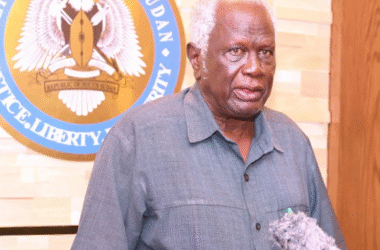By Philip Buda Ladu
A Kenyan High Court judge has issued a temporary order halting a government directive requiring all refugees and asylum seekers to surrender their passports from their countries of origin.
The decision comes after a legal challenge filed by Refugee Legal Networks and Semhar Weldemicael Haile, a refugee living in Kenya.
The petitioners argued that the government’s directive, issued in September 2024, violated the rights of refugees under Kenyan and international law.
Judge Bahati Mwamuye issued the temporary order on October 29th, 2024, after a preliminary review of the case, effectively putting a freeze on the Kenyan government’s plan.
The order prevents the government from enforcing the passport surrender order, meaning that refugees and asylum seekers no longer have to surrender their passports until a full hearing of the case takes place.
The judge also ordered the Commissioner of Refugee Services to notify the public, particularly refugees and asylum seekers, about the court’s decision within three working days.
This notification must be posted on the Department of Refugee Services’ website and social media channels, as well as in refugee camps and major refugee organizations.
The court has set a timeline for further proceedings. Both sides in the case will have a chance to file their arguments and evidence. A hearing to determine the legality of the government’s directive is scheduled for November 19th, 2024 to determine the legality of the government’s directive.
Background
In September 2024, the Kenyan government directed all refugees and asylum seekers to surrender their passports within 30 days. It said this was necessary to safeguard refugee status and rights under international law.
However, refugee rights groups have criticized the move, arguing that the measure could hinder refugees’ ability to travel for resettlement opportunities, education, or medical care and to visit family members in other countries.
The court order is a temporary victory for refugee rights groups advocates in Kenya. However, the legal challenge to the government’s directive is still ongoing and it remains to be seen how the case will be ultimately decided.
The full hearing in November will determine whether the government’s policy will be permanently blocked, but for now, refugees and asylum seekers can keep their passports.
For three decades, Kenya has hosted refugees from neighboring countries, with around 796,100 registered refugees and asylum seekers present in the country by the end of August 2024.
These refugees mostly from Somalia, South Sudan, and others from the Democratic Republic of Congo (DRC), and Burundi mainly live in the Dadaab and Kakuma refugee camps as well as urban areas, including the capital, Nairobi
With the new Refugee Act in Kenya if fully implemented, it offers refugees freedom of movement, the right to work, and access to financial services, among other rights.



